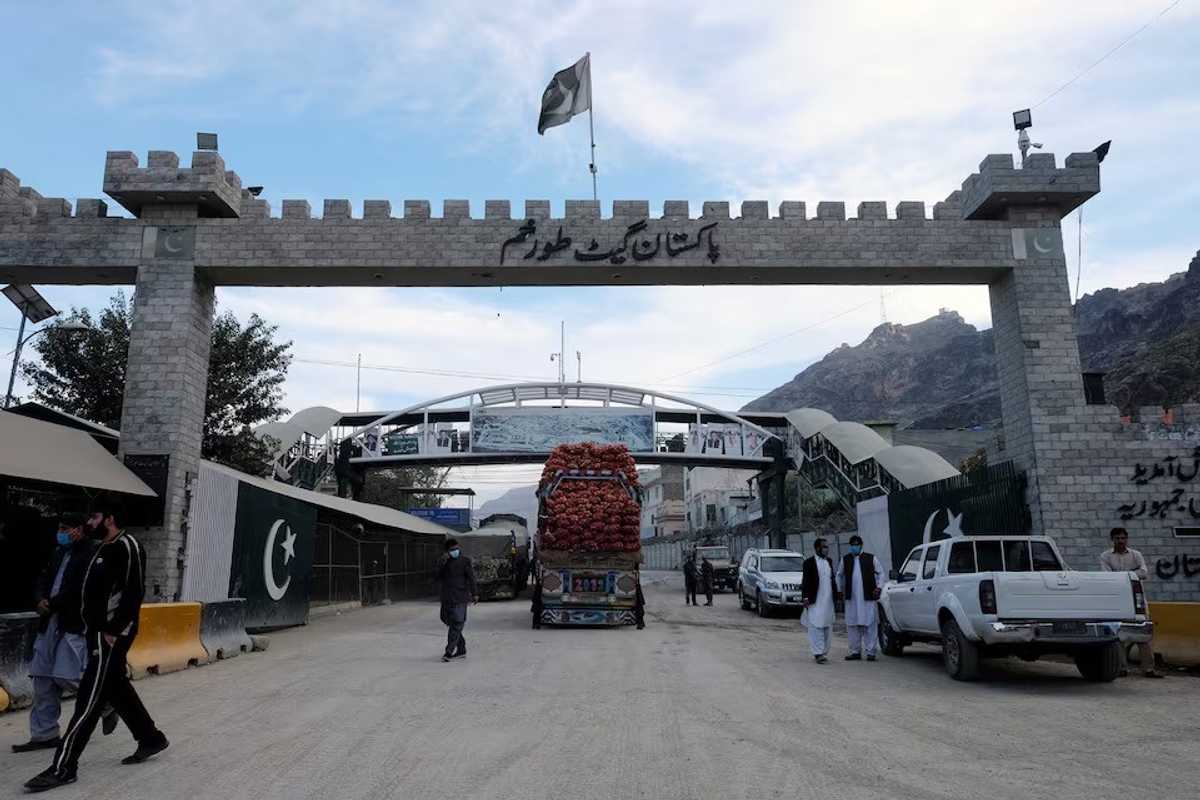Talks fail at Pak-Afghan Torkham border as jirga faces deadlock
Efforts to ease border tensions stalled as jirga deadlocked over member expansion and meeting delays

Kamran Ali
Correspondent Nukta
Kamran Ali, a seasoned journalist from Khyber Pakhtunkhwa, Pakistan, has a decade of experience covering terrorism, human rights, politics, economy, climate change, culture, and sports. With an MS in Media Studies, he has worked across print, radio, TV, and digital media, producing investigative reports and co-hosting shows that highlight critical issues.

Efforts to resolve tensions at the Pakistan-Afghanistan Torkham border ended without progress as a joint jirga faced deadlock. The impasse arose when Pakistan expanded its jirga members at the last minute and failed to convene the meeting on time, prompting Afghan representatives to leave in protest.
Haji Gul Murad, head of the Afghan jirga and president of the Nangarhar Chamber of Commerce, told Nukta that Afghan representatives had arrived on time and waited the entire day.
"Pakistan rescheduled the jirga three times but still failed to show up, forcing us to leave without any discussions," Murad said.
Internal rift in Pakistani jirga
Disagreements among Pakistani representatives further complicated matters.
Yad Wazir, a Pakistani jirga member, accused the Khyber Chamber of Commerce of causing the deadlock by favoring certain individuals over key stakeholders.
Another Pakistani member, Haider Ali, also blamed the chamber, saying it ignored participants from the initial meeting held on March 9.
Syed Jawad Hussain Kazmi, head of the Pakistani jirga and president of the Khyber Chamber of Commerce, acknowledged the expansion of the member list from 17 to 70. He said seeking official approval caused delays, which led to multiple reschedules.
Murad emphasized that Afghanistan had no objections to Pakistani representatives but urged Pakistan to show seriousness.
Kazmi stated that Pakistan had informed all stakeholders to submit names for inclusion and that a new meeting would be scheduled soon.
"I am in contact with Afghan members. Once our list is finalized, they will be informed. The meeting could take place in a day or two," Kazmi said.
Key demands on the table
Mujeeb Shinwari, a Pakistani jirga member and president of the Customs Clearance Agents at the Torkham border, outlined Pakistan’s three key demands for the next meeting.
He stated that Pakistan would insist on a ceasefire until the 15th day of Eid, ensuring stability during negotiations. Additionally, Pakistan seeks a halt to construction on the disputed post, which has been a major point of contention.
The final demand is the immediate reopening of the border to restore trade and cross-border movement, both of which have suffered due to the prolonged closure.
Kazmi confirmed that these points were conveyed to the Afghan government and would be discussed in the upcoming meeting.
Murad said Afghanistan had shared Pakistan’s concerns with its authorities and reiterated the importance of reopening the border.
Border closure hurts trade
The Torkham border, a key trade route, has remained closed for over three weeks. Tensions escalated when Afghan forces attempted to build a bunker near the crossing, prompting a security response from Pakistan.
Pakistani security officials said the construction took place within 500 meters of the border, leading to an exchange of fire that forced local residents to flee.
Trade and cross-border movement have been severely impacted. According to customs officials, around 10,000 pedestrians cross the border daily, while trade through Torkham amounts to $1.4 million in exports and $1.6 million in imports per day, both of which remain suspended.
Journalist Farid Shinwari estimated that Pakistan is losing between $1.2 million and $2.5 million daily due to the closure.
"In 2011, bilateral trade peaked at $2.5 billion, but repeated border closures and disruptions have reduced it to $700 million," Shinwari said.
The next meeting's outcome will be crucial in determining whether trade and movement at the Torkham border can resume.







Comments
See what people are discussing